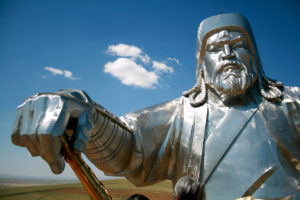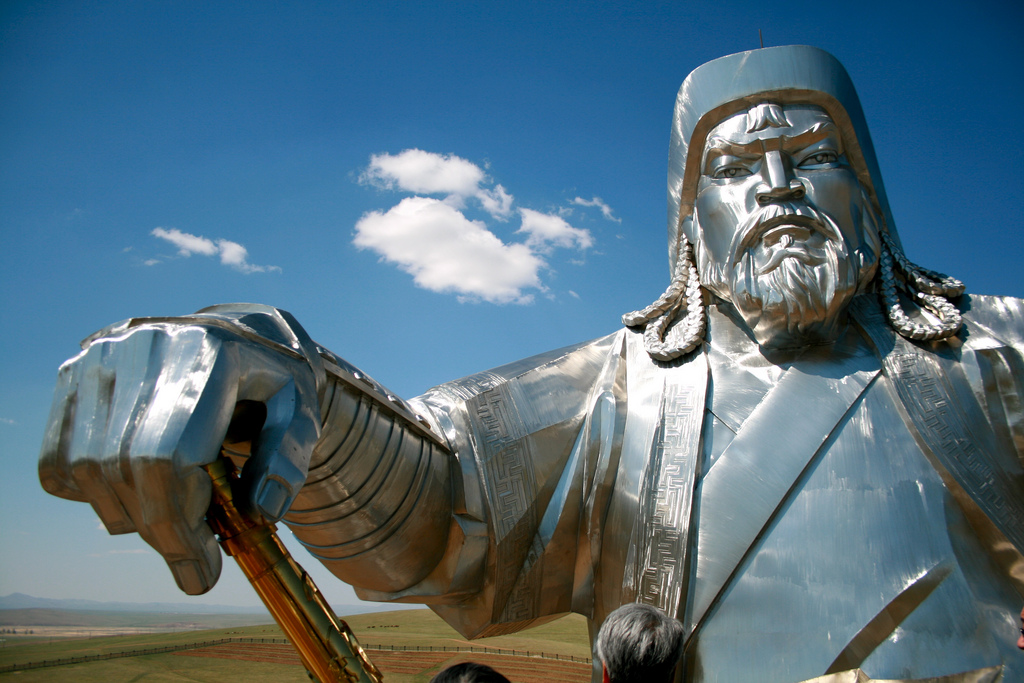
Genghis Khan, Photo by Francois Phillipe
Some years ago I wrote about the genius of Temujin—Genghis Khan.
I want to return to this, but take a different approach. Why was Temujin so successful?
“Hired A’s”
Yeah, I hate startup culture too. But, the bottom line is that Temujin’s main lieutenants were all brilliant too. Subodei is in the running for one of the world’s greatest generals. His main administrator was brilliant. And Temujin took people who were his enemies and made them his leaders, and they stayed loyal. That’s genius, and it’s the number one thing that made him great, especially because he let them do their jobs without getting in the way: He trusted them and didn’t second guess them.
Effectively Used Spies and Intelligence
Temujin cultivated merchants. He talked to them, he treated them well, he offered them real protection. Before he ever went to war with anyone, he knew their military, he knew any internal problems they had, from disloyal satraps to recently conquered and still restive people. He knew the geography, and so on.
He Prioritized Local Superiority of Force
Westerners have this weird idea that the Mongols were a horde. To the contrary, in all major campaigns of Temujin’s life, they were outnumbered. In many cases, this is true even after his death. Subodei’s invasion of Europe was against much larger numbers.
Temujin and Subodei used feints and threats and encircling movements to deceive their enemies. During the invasion of Afghanistan, for example, an initial attack burned down a large area, making it uninhabitable. The troops then withdrew. The enemy thought that, all the farms having been burned, no invasion could come through that area. Of course, then an invasion did.
This sort of attacking from directions that are assumed impossible was used all the time, and is routine for great generals. (Scipio Africanus and Hannibal, the two greatest generals of ancient times, used it to great effect.)
He also used detached columns to threaten areas that his enemies needed to defend. A small force, moving fast, would force enemies to run back to defend, even if the enemy was much larger.
He used multiple columns all the time, threatening multiple targets that had to be defended, forcing dispersion of enemy forces. Then he would bring his forces together and achieve numerical superiority against armies, that, in toto, were much larger than his.
It doesn’t matter if your enemy outnumbers you overall, if you outnumber them every time you fight them.
He Didn’t Attack Strong Positions or Waste His Own Troops
For example, he left the Chinese capital alone multiple times when he knew the Chinese army was still too strong to defeat. He didn’t order frontal assaults and waste his own troops. He would happily waste unreliable troops: Often, he would levy all men from defeated cities and towns and use them as the first wave attack against enemy walls, for example.
He Didn’t Trust Traitors
Temujin turned enemies into his chief leaders, but he did so after defeating them honestly. Anyone who betrayed their previous masters before defeat he did not trust.
None of this…
…is to deny his obvious advantages–like horse archers, among others. But contrary to what people think, horse archers were defeated often. Yes, they had the ability to break out and conquer far larger civilized nations, but most of the time, large, civilized nations kept them in their place.
Many of Temujin’s victories were over other horse archers: He unified tribes beyond just the Mongols and did so fighting troops which had the same horses and bows and so on that he did.
It was genius on three fronts that made Temujin into Genghis Khan. He was a genius general, who did not interfere with other generals (reading WWII history, and how hard Guderian, Manstein, and Rommel had to fight to get German high command to properly use blitzkrieg is instructive).
He was a genius leader, who could recognize other genius leaders and was able to earn their loyalty and not get in their way.
He made brilliant use of intelligence and planning. Temujin did not fight a war until he knew his enemies’ strengths and weaknesses better than they did.
Finally, he fought his enemies minds. He defeated the enemy leaders by out-thinking them, by making them react to illusions he presented, moving them and their troops around almost as much as he moved his own troops around.
The Mongols, absent a leader like Temujin, might well have broken out. But they would never have created the greatest land empire ever known to man.
More on what this means, for us, later.
The results of the work I do, like this article, are free, but food isn’t, so if you value my work, please DONATE or SUBSCRIBE.

